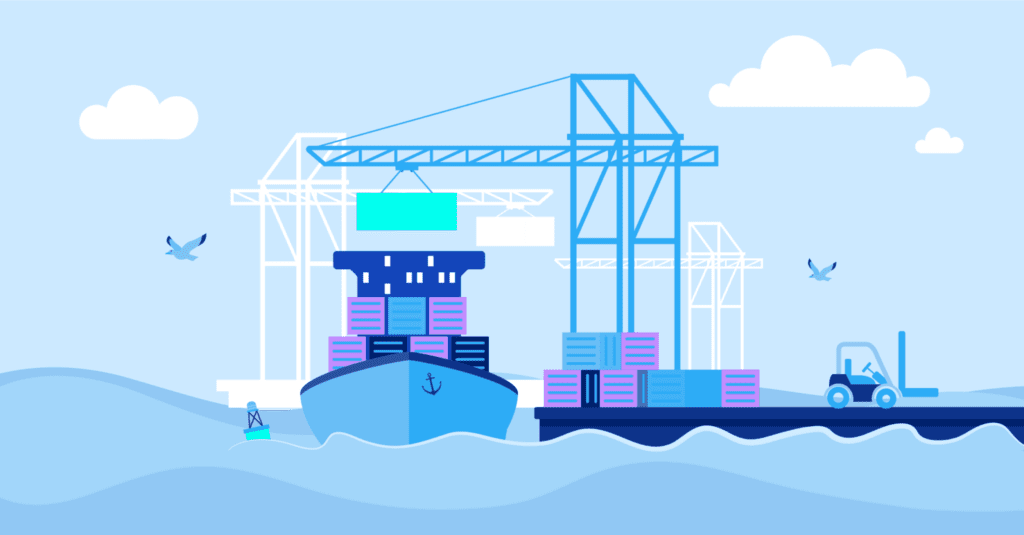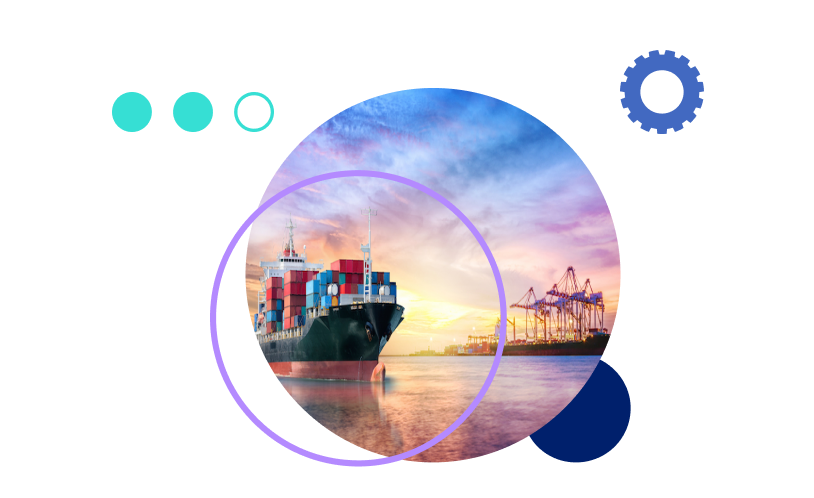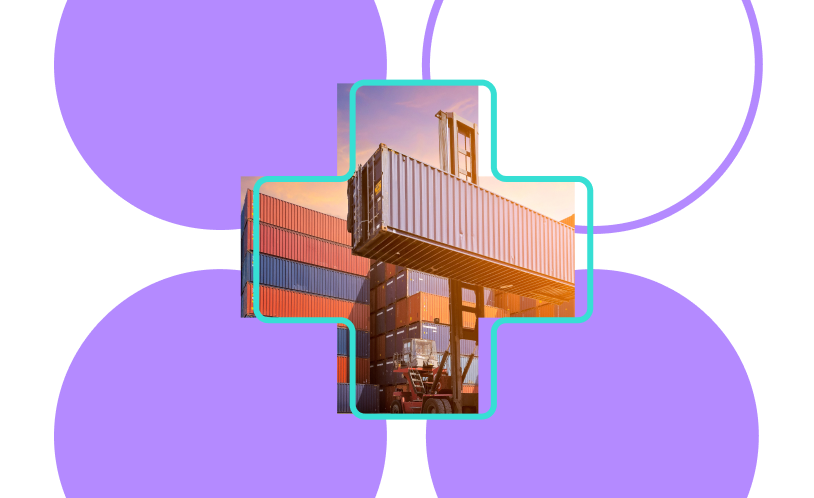What is ISPS?
After the 9/11 terrorist attacks, the International Maritime Organization (IMO) took some important steps to enhance security in international shipping. One key move was the introduction of the International Ship and Port Facility Security Code (ISPS). ISPS was put in place to make sure that crews, ships, ports, and cargo in international waters are safer and more secure.
The primary goal of ISPS is to set rules and responsibilities when it comes to security. Governments, shipping companies, and port operators all have specific roles in making sure security threats can be spotted and dealt with so freight ships can travel safely.
How does this apply to importers and exporters? Mostly you won’t have to worry about it – but you will likely have to pay fees to cover these security costs. What goes into these costs and why does it cost the shipper? Read on to find out.
Forget the headache of shipping codes.
Instantly compare quotes from vetted providers who manage security for you.
Guide to the ISPS code in shipping
Some key elements of the ISPS code include:
- Security plans: every ship, port facility, and shipping company covered by the ISPS Code must have a comprehensive security plan. These plans are tailored to the specific characteristics and operations of each entity, outlining measures to address security threats.
- Security levels: the ISPS Code establishes three security levels, each indicating the degree of threat and the corresponding security measures to be implemented.
- Security personnel: ships, port facilities, and companies must designate individuals responsible for security-related tasks, ensuring a coordinated and well-executed security strategy.
- Monitoring and surveillance: the ISPS Code mandates the continuous monitoring of cargo, personnel, and the surrounding areas. Surveillance measures include technology such as security cameras to detect and deter security threats.

Navigating ISPS charges & shipping costs
ISPS fees are there to cover the expenses of implementing security measures. Companies involved in shipping, including carriers, terminals, and shipping lines, are required to pay them, but they typically pass the charges on to customers as part of overall freight quotes. Practically speaking, the party responsible for paying for the freight is also responsible for ISPS surcharges.
Here are two types of charges you might encounter that cover the costs of implementing security measures required by the ISPS Code:
- Carrier Security Fee (CSF): a surcharge imposed by shipping carriers
- Terminal Security Charge (TSC): a fee charged by terminal operators to cover security measures at port facilities
Some factors influencing ISPS shipping costs include:
- Vessel type and size: larger vessels may incur higher security costs, since monitoring and securing them requires more resources.
- Port facilities: ports equipped with advanced security infrastructure may have lower security costs compared to those requiring substantial upgrades to meet ISPS compliance.
- Security threat levels: in regions or situations where security risks are heightened, additional measures may be necessary, which could mean higher costs.
- Compliance measures: proactive adherence to security plans, training protocols, and routine assessments could save the costs of corrective actions or penalties.
- Route and geographical considerations: shipping routes through areas with higher security risks may incur elevated ISPS charges.
ISPS FAQ
1. Who is obligated to comply with the ISPS Code?
ISPS Code compliance is mandatory for international ships, port facilities serving such ships, and relevant personnel. Governments, shipping companies, and port operators all have designated responsibilities.
2. What are the three security levels in the ISPS Code?
The ISPS Code defines three security levels:
- Security Level One (Normal): standard security operations
- Security Level Two (Heightened): increased security measures due to higher risk
- Security Level Three (Exceptional): specific security measures in response to imminent threats
3. What do I need to do as an importer or exporter to comply with the ISPS Code?
If you are working with a reliable freight forwarder, you will not deal directly with ISPS compliance issues. Nevertheless, you can help your forwarder make sure compliance goes smoothly by providing accurate and complete information about your cargo. In addition, don’t forget to include ISPS fees in your freight budget so you are not surprised by these charges.
4. How does ISPS contribute to global maritime security?
ISPS fosters international cooperation to identify and prevent security threats. By establishing clear roles, responsibilities, and protocols, it allows for effective, coordinated responses to potential hazards. That means better security.
5. Can ISPS compliance be audited?
Yes, ISPS compliance is subject to audits. Governments, authorized security organizations, and the IMO may conduct audits to ensure adherence to the ISPS Code.
6. Are there penalties for non-compliance with the ISPS Code?
Non-compliance can result in penalties, including fines, detention of ships, and suspension of operations. Stricter security measures may also be imposed until compliance requirements are met.
Solve shipping needs with Freightos.com
For a hassle-free and secure international shipping experience, use the Freightos.com platform. Compare quotes from freight forwarders, communicate with your providers, access important documentation, and manage your entire shipment from beginning to end, all in one place.



